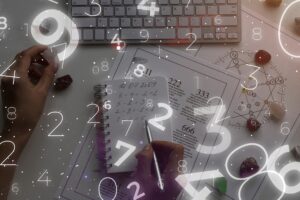Approaching physics numericals in board exams requires a combination of conceptual understanding, practice regularly, problem-solving skills,Break down problems,double-check your work and time management.
Ready to learn more? Enrol at Learn Physics With Ease in Dum Dum, Kolkata, and unravel the wonders of the physical world with our engaging and expert-led classes! We follow the NCERT curriculum for Classes 11 and 12 (CBSE, ISC & WB Board) to ensure a strong foundation in physics concepts.
Here are some effective strategies to tackle physics numericals:

1.Understand the Concepts Thoroughly:
- Don't just memorize formulas: Physics is about understanding how things work. Make sure you grasp the principles behind each formula and how they relate to the physical world.
- Know the derivations: Many numericals are based on derived formulas, so understanding how they are derived helps in applying them correctly.
- Memorize key formulas:Keep a list of important formulas and constants handy for quick reference.
- Connect theory to practice:Relate the concepts you've learned to the problems you're solving. This will help you choose the right formulas and approach the problem correctly.
2. Read the Question Carefully:
- Identify given values and what needs to be found.
- Look for hidden information (e.g., "a body is dropped" implies initial velocity= 0).
3.Practice Makes Perfect:
- Solve previous years' papers: This helps you understand the exam pattern and the types of numericals asked.
- Solve mock tests: This helps you assess your preparation and identify areas where you need to improve.
- Focus on weak areas: Identify topics where you struggle and practice more problems from those areas.
- Practice time-bound sessions: Solve numericals within a time limit to improve speed and accuracy.
4. Manage Time Wisely:
- Attempt easier questions first:Solve the numericals you find easier to gain confidence and secure marks quickly.
- Allocate time for each question:Don't spend too much time on any one question. If you get stuck, move on and come back to it later if time permits.
- Review your answers:If time permits, double-check calculations and units.
- Don't panic:If you feel overwhelmed, take a deep breath and focus on the task at hand.
5. Common Mistakes to Avoid:
- Skipping units or using incorrect units.
- Misinterpreting the question or using the wrong formula.
- Calculation errors due to haste or lack of practice.
- Not showing steps, which can lead to loss of marks even if the final answer is correct.

6. Convert Units if Necessary:
- Ensure all values are in SI units before solving.
- Common conversions:
- km/h → m/s (multiply by 5/18)
- g → kg (divide by 1000)
- cm → m (divide by 100)
7.Problem-Solving Strategies:
- Break down the problem into smaller steps:Don't try to solve the entire problem at once. Break it down into manageable steps and solve each step individually.
- Draw diagrams: Visualizing the problem can help you understand the situation and identify the relevant physics concepts.
- Choose the appropriate formula:Select the formula that best describes the physical situation.
- Check your answer: Make sure your answer makes sense in the context of the problem.
- Double-check your calculations: Take a moment to verify your calculations to avoid careless mistakes.
8.Use Shortcuts Wisely:
- Learn and apply shortcuts or tricks for common types of numericals, but only if you are confident about their accuracy.
- Avoid using shortcuts for the first time during the exam. Stick to methods you have practiced.
9. Verify the Answer:
- Check if the final answer is reasonable and within expected limits.
- Ensure the units are correct.
10.Stay Calm and Focused:
- Don’t panic if a problem seems difficult. Break it down and tackle it step-by-step.
- Maintain a positive attitude and trust your preparation.
